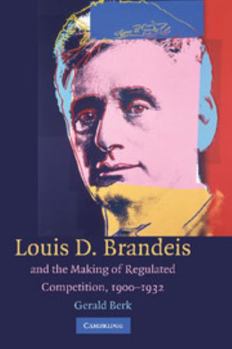Louis D. Brandeis and the Making of Regulated Competition, 1900 1932
Select Format
Select Condition 
Book Overview
This book provides an innovative interpretation of industrialization and statebuilding in the United States. Whereas most scholars cast the politics of industrialization in the progressive era as a narrow choice between breaking up and regulating the large corporation, Berk reveals a third way: regulated competition. In this framework, the government steered economic development away from concentrated power by channeling competition from predation to improvements in products and production processes. Louis Brandeis conceptualized regulated competition and introduced it into public debate. Political entrepreneurs in Congress enacted many of Brandeis's proposals into law. The Federal Trade Commission enlisted business and professional associations to make it workable. The commercial printing industry showed how it could succeed. And 30 percent of manufacturing industries used it to improve economic performance. In order to make sense of regulated competition, Berk provides a new theory of institutions he calls "creative syncretism," which stresses the recombinability of institutional parts and the creativity of actors.
Format:Paperback
Language:English
ISBN:1107405084
ISBN13:9781107405080
Release Date:July 2012
Publisher:Cambridge University Press
Length:296 Pages
Weight:1.00 lbs.
Dimensions:0.7" x 6.0" x 9.0"
Customer Reviews
0 rating





